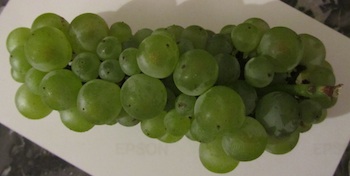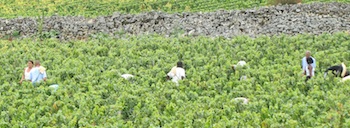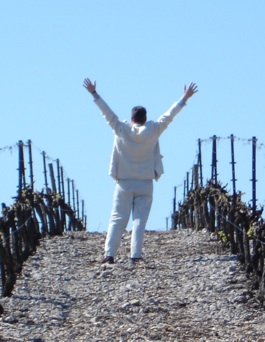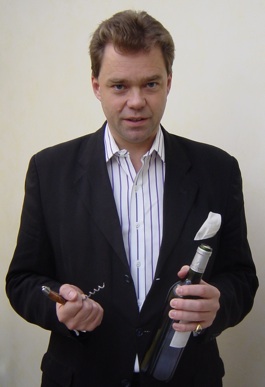Montrachet for Breakfast

The harvest at Montrachet is nearly finished. Speaking to Philippe Drouhin at the vineyard on Saturday he explained that they had all but a few rows left to pick and these will be done in the early days of this week. Perhaps more interesting is the plot of land which is lying fallow at present. This lies within the Marquis de Laguiche’s two-hectare holding that Maison Joseph Drouhin has managed and vinified for many decades. The vines, dating from 1961, were uprooted earlier this year and various grasses and flowers have been planted there to refresh the soil, some with the specific intention of getting more nitrogen into it. Virus control is also a paramount consideration.

Harvesters at Montrachet, Saturday, 3rd September 2011.
Replanting will take place in two years’ time and it will be three years after that before a usable crop is got. The first crop from new vines can be very good but it will be vinified separately and only at the time of bottling will it be decided to include it in the Montrachet bottling or to declassify it to premier cru or even village Puligny.
In area, the plot extends to about 20 ares, or one-tenth of the Laguiche holding. Not much when you say it that way but consider this: the Ramonet holding in Montrachet is 26 ares and that of Domaine Leflaive is a mere eight. Being able to let that amount of land lie idle takes considerable resources. At a yield of, say, 30 hectolitres per hectare it equates to six hectolitres, or a ‘loss’ of 800 bottles for the years that the land is out of production. Said wine retails for over €300 per bottle. As they say, do the math.

